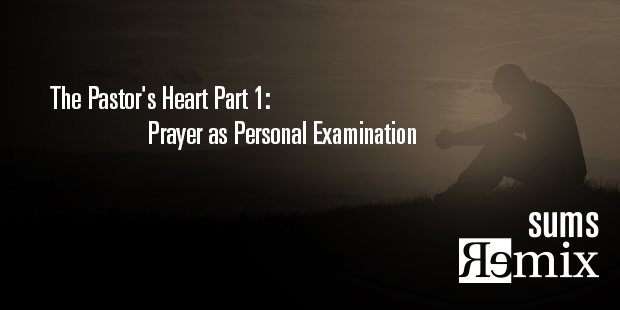
How to Make Crisis an Opportunity for Growth
Every crisis is a leadership opportunity.
As a pastor, you minister to people in crisis all the time. It could be a health, relational, or professional crisis. It could even be a crisis born out of a natural disaster, such as a tornado, hurricane, earthquake, or flood. In these situations, people will often turn to you first.
What should you do when they come your way?
Start with prayer. Don’t use it as a last resort, after you’ve done everything else. Even though there are a variety of actions you should take when ministering to people in a crisis, always pray first.
Daniel is a great model for how to pray during a time of crisis. Near the end of his life, 70 years after he and his friends were exiled into captivity in Babylon, Daniel faced a crisis of confidence. Daniel wanted to go home before he died. He knew the prophet Jeremiah had promised that the Israelites would return home after 70 years—and that time period was finally coming to an end. So Daniel prayed.
His prayer is a great model for believers who find themselves in a period of crisis. Here is how Daniel prayed:
Daniel listened to God.
How do you listen to God? You study his Word. That’s what Daniel did. At the beginning of chapter 9, he is reading God’s promise from Jeremiah to bring back the Israelites to Jerusalem.
When our people are in a crisis, we must help them focus on God’s promises. God gives us thousands and thousands of promises in the Bible. These promises provide a great foundation for prayer during a crisis.
Daniel focused his attention on God.
Daniel did this physically. Daniel 9:3 says, “I turned to the Lord” (NLT). One of the reasons a crisis causes us so much pain is we often take our eyes off God in the middle of it. Instead, we desperately need to focus on God during difficult times.
When you turn toward your family and friends, you focus your attention on them. The same is true in your relationship with God. Many people do this by bowing their heads and folding their hands. Personally, I like to look up when I pray because it helps me focus on God.
During a crisis, teach people how to focus on God—not their circumstances—and on what he is doing in their lives.
Daniel expressed his desires with emotion.
The Bible says that Daniel did more than just make his requests known to God. Daniel “pleaded with him.” Your passion and intensity often reveal how much something matters to you. Show God that your request is more than just a whim, that it’s a strong desire on your part.
The Hebrew word Daniel uses to describe his pleading means “begging.” Daniel wasn’t just asking God to let him go back to Jerusalem. He was begging. Teach your people that it’s okay to fully express themselves to God while in a crisis. When a person doesn’t feel like praying, it’s because they aren’t praying their feelings. Encourage your people to pray with emotion.
Daniel demonstrated his seriousness.
First, he fasted. Most of our congregations are familiar with this spiritual discipline. Then Daniel prayed wearing sackcloth and ashes. No one does this today, but for hundreds of years in the Middle East, this practice showed a person’s seriousness.
Jesus said some miracles can only happen through prayer and fasting, not by prayer alone. Fasting showed how serious a person was about the request. You see the importance of this over and over in the Bible. During a crisis, we need to help people demonstrate their seriousness before God.
Daniel thanked God for his love and promises.
The Bible says that when you give your requests to God, ask with thanksgiving. Daniel prayed: “Lord, you are great and deserve respect as the only God. You keep your promise and show mercy to those who love you and obey your commandments” (Daniel 9:4 GW). Daniel told God he was grateful for him, and he recognized the Lord’s faithfulness to fulfill his promises.
As we help people through a crisis, we need to encourage them to express their gratitude to God. It’s easy to forget this aspect of prayer, but it’s important because it’s God calls us to be grateful people—this is what we see illustrated in Daniel’s life. Thankfulness helps us see beyond our problems.
Daniel humbly confessed his sin.
God doesn’t want to hear prideful complaining, but he does listen to humble confessing. God never responds to our confession of sin with punishment. Instead, he blesses us when we’re honest about our sin.
“We have sinned, done wrong, acted wickedly, rebelled, and turned away from your commandments and laws” (Daniel 9:5 GW).
Daniel didn’t just give a general confession. He specifically mentioned what the people of Israel had done wrong. He knew that God’s help would only come because of his grace—not because the people deserved it.
You and the people you lead will face all kinds of crises. As a pastor, one of the most important things you can do is help them to pray during this time.

Tags: Crisis, Opportunity, Prayer, Rick Warren


















